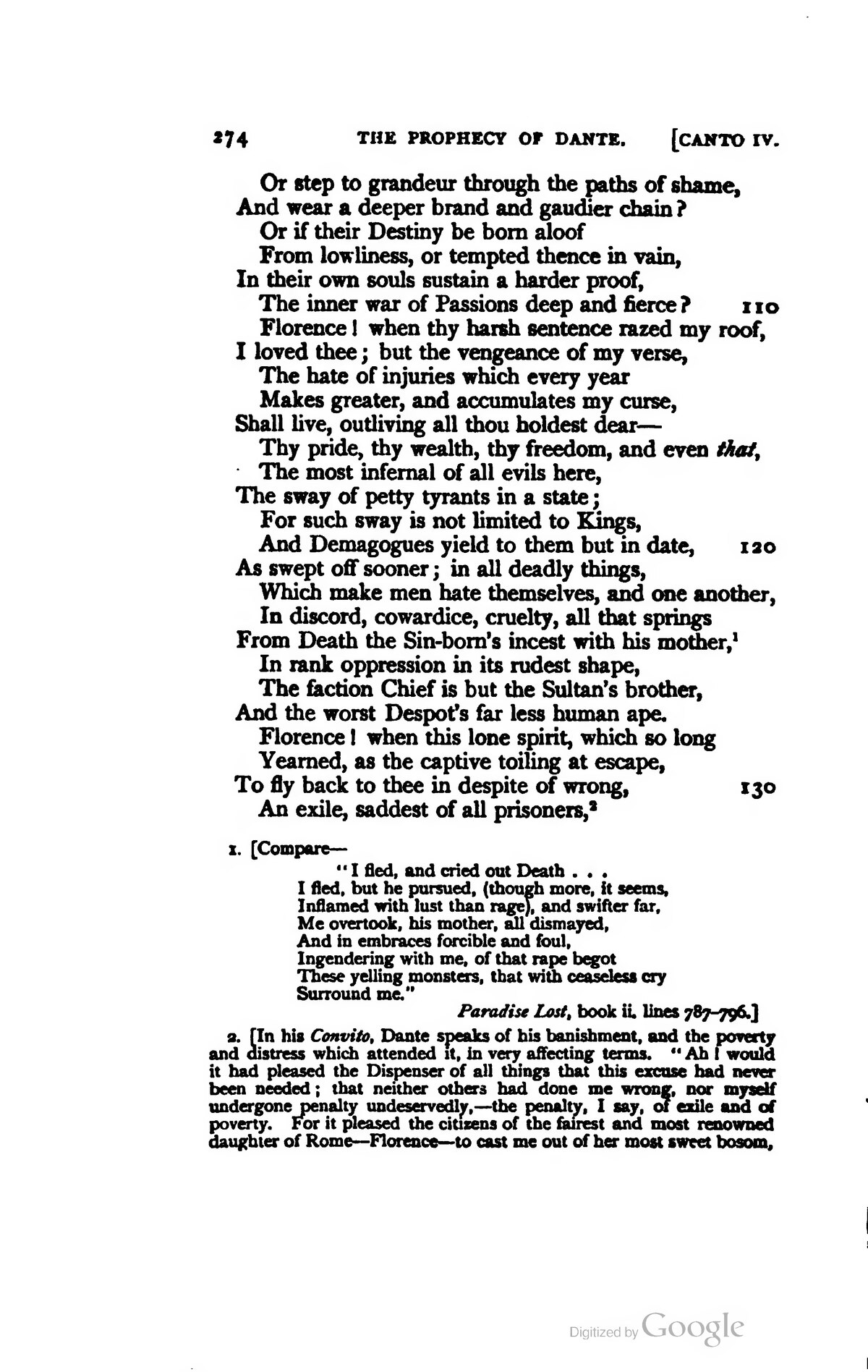Or step to grandeur through the paths of shame,
And wear a deeper brand and gaudier chain?
Or if their Destiny be born aloof
From lowliness, or tempted thence in vain,
In their own souls sustain a harder proof,
The inner war of Passions deep and fierce?110
Florence! when thy harsh sentence razed my roof,
I loved thee; but the vengeance of my verse,
The hate of injuries which every year
Makes greater, and accumulates my curse,
Shall live, outliving all thou holdest dear—
Thy pride, thy wealth, thy freedom, and even that,
The most infernal of all evils here,
The sway of petty tyrants in a state;
For such sway is not limited to Kings,
And Demagogues yield to them but in date,120
As swept off sooner; in all deadly things,
Which make men hate themselves, and one another,
In discord, cowardice, cruelty, all that springs
From Death the Sin-born's incest with his mother,[1]
In rank oppression in its rudest shape,
The faction Chief is but the Sultan's brother,
And the worst Despot's far less human ape.
Florence! when this lone spirit, which so long
Yearned, as the captive toiling at escape,
To fly back to thee in despite of wrong,130
- ↑ [Compare—
"I fled, and cried out Death...
I fled, but he pursued, (though more, it seems,
Inflamed with lust than rage), and swifter far,
Me overtook, his mother, all dismayed,
And in embraces forcible and foul,
Ingendering with me, of that rape begot
These yelling monsters, that with ceaseless cry
Surround me."Paradise Lost, book ii. lines 787-796.] - ↑ [In his Convito, Dante speaks of his banishment, and the poverty and distress which attended it, in very affecting terms. "Ah! would it had pleased the Dispenser of all things that this excuse had never been needed; that neither others had done me wrong, nor myself undergone penalty undeservedly,—the penalty, I say, of exile and of poverty. For it pleased the citizens of the fairest and most renowned daughter of Rome—Florence—to cast me out of her most sweet bosom,
